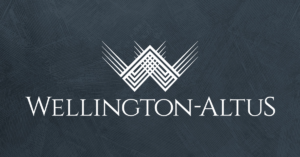Download this article as a PDF.
While tax planning should be viewed as a year-round activity, there are several actions that can help you take full advantage of available credits, deductions and other savings as the year draws to a close. Here are a few last-minute tax-saving strategies for consideration:
01. Tax-loss selling (or donating)
If you own securities that are in loss position, one silver lining is the opportunity to sell or donate them before December 30 (as December 31 is a Saturday), and apply the capital loss tax deduction against reportable capital gains this year or in any of the previous three years. Initiate the trade before December 28 to allow at least two days for the transaction to settle, and in the instance of donating this should be arranged by December 23.
02. Income-splitting opportunities
With the federal prescribed rate for loans to family currently at a relatively low 3%, it’s possible to lend funds to a lower-income family member and have any income or capital gains earned on the funds taxed in the hands of the borrower. The rate goes up to 4% in January, so new or additional funds should be finalized and loaned before year-end. Interest relating to 2022 prescribed rate loans must be paid by January 30, 2023.
03. Year-end donations and expenses
Charitable donations or in-kind donations of securities made by December 31 will generate federal and provincial tax credits for 2022 – but be sure to start the donation process well in advance. Other eligible payments before the end of the year that can generate potential tax savings include medical expenses for individuals and their families, investment counsel fees, interest and other investment expenses, political donations and union dues.
04. Tap your Tax-Free Savings Account (TFSA)
Withdraw any funds needed from your TFSA before December 30 as the amount will be added back to your 2023 TFSA contribution room. If you wait to withdraw such funds in January 2023, you must wait until 2024 to have the contribution room added back.
05. Registered plan considerations
Individuals turning 71 in 2022 must convert their Registered Retirement Savings Plan (RRSP) to a Registered Retirement Income Fund (RRIF) or registered annuity by the end of the year. They must also make any final RRSP contributions by December 31, 2022.
Parents and grandparents, meanwhile, should consider making Registered Education Savings Plan (RESP) contributions before the year-end to receive the federal education savings grant, where eligible. In general, a RESP grant of 20%, up to $500 annually is received.
For more tax planning information and assistance, please contact your Wellington-Altus Advisor.

